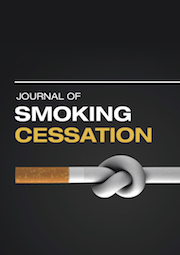Article contents
R u a smkn m0m?: Aspects of a Text Messaging Smoking Cessation/Reduction Intervention for Younger Mothers
Published online by Cambridge University Press: 13 December 2013
Abstract
Introduction: Women who are younger in age are more likely to smoke during pregnancy and postpartum and tend to have less success with cessation/reduction. There is an unmet need for interventions targeted to pregnant and postpartum young women that provide them with support to quit/reduce long-term into the postpartum period and beyond.
Aims: Our study aimed to gain an in-depth understanding of the perspectives of young pregnant and postpartum women of text messaging (TM) as a conduit for smoking cessation/reduction, and to determine the appropriate content, frequency, duration and unique features needed for an effective cessation/reduction TM programme.
Methods: Six focus groups and six telephone interviews were convened with 36 pregnant and postpartum women 16–30 years of age.
Results: Three main themes were identified: 1) topic areas that women would like TM to focus on; 2) the need for messages to be tailored; and 3) the importance for the programme to take a woman-centered approach.
Conclusions: Respondents supported the idea of a TM cessation/reduction intervention and had clear programme recommendations. A personalised, woman-centered TM programme that meets a young woman's unique needs and addresses her concerns through her participation and direction is likely to empower and support her to quit/reduce.
Information
- Type
- Articles
- Information
- Copyright
- Copyright © The Author(s), published by Cambridge University Press on behalf of Australian Academic Press Pty Ltd 2013
References
- 1
- Cited by

